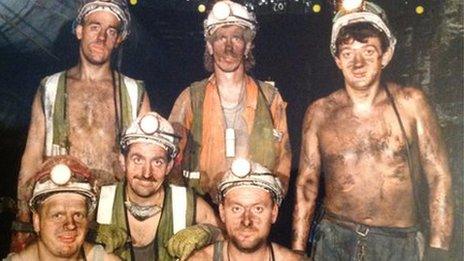Brinsley Headstocks: Decision due on 'final remnant' of mining history
- Published
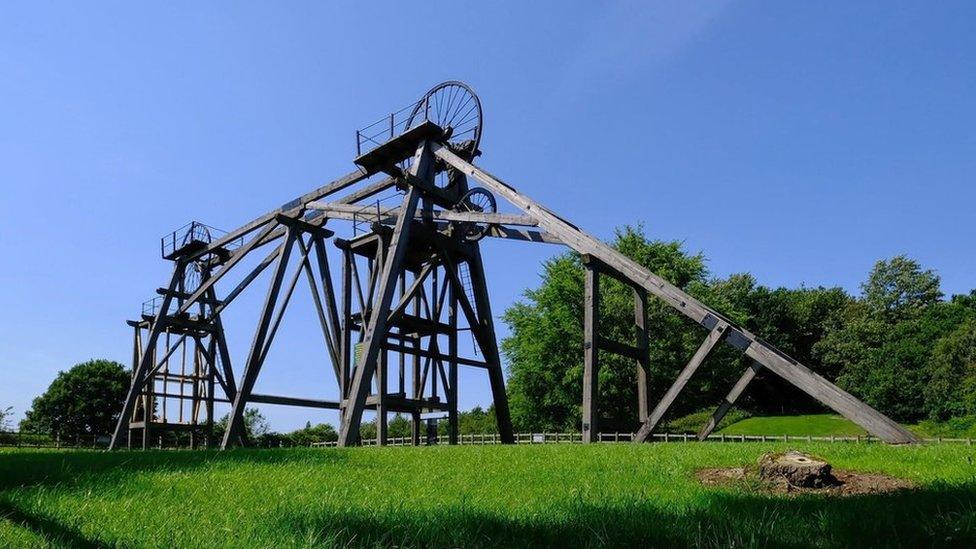
More than 1,000 people have signed a petition calling for the restoration of the Brinsley Headstocks
A decision on the future of one of "the final remnants of mining" is expected in the new year after it was removed earlier this month.
Residents from Brinsley in Nottinghamshire have called for the reinstatement of headstocks that are the last of their kind in the country.
Broxtowe Borough Council removed the structure on 15 December as it "posed a risk to public safety".
Headstocks were used to lower workers into the mines, and lift coal back out.
The Brinsley structure is the last remaining timber tandem headstocks in the country, and has a working history dating back to 1872.
In 2008, the Friends of Brinsley Headstocks (FOBHS) was formed to protect and maintain it.
'Carefully dismantled'
In a statement, the borough council said that earlier this year, the headstocks were fenced off after an inspection highlighted safety concerns.
"At the beginning of September 2023, the metal colliery wheels were removed, in the hope that the timbers from the towers could be salvaged," a spokesperson said.
"However, a more recent site inspection highlighted that the wooden structure had further deteriorated and posed a risk to public safety.
"Given the continued decline, it became obvious that restoration of the structure, as it currently stood was no longer possible.
"The best course of action from a health and safety perspective, was to have the headstocks carefully dismantled, salvaging as many original timbers and the ironwork from the structure as possible."
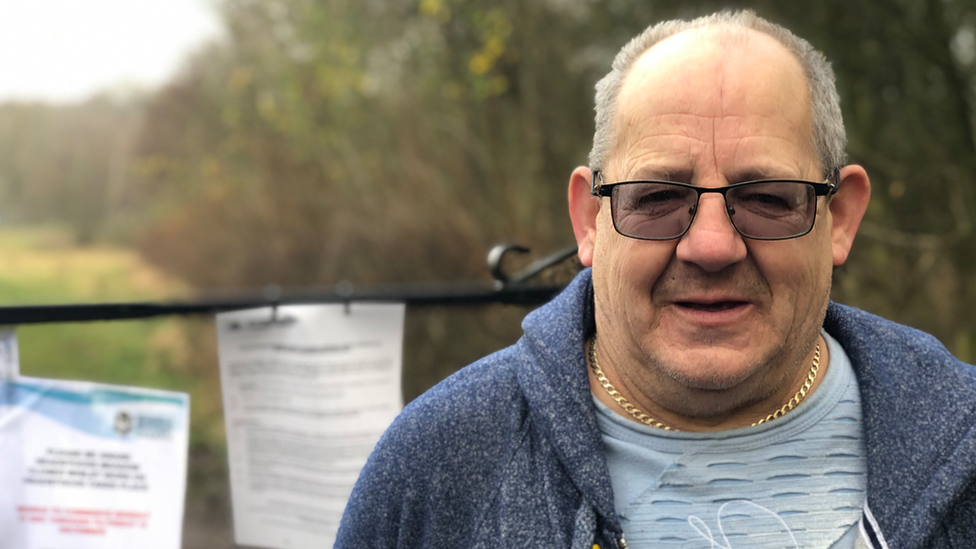
Ken Hamilton, chairman of the Friends of Brinsley Headstocks, used to give talks at the site
The council added options were being considered, with a decision expected to be reached in the new year.
Ken Hamilton, chairman of FOBHS, said: "I think the whole village is quite disappointed that they've gone.
"What we actually want is a meeting at the parish hall with Broxtowe Borough Council, when they've got an idea of what they're going to do, so the whole village can be involved."
Author D.H. Lawrence's father worked in the pit at Brinsley, with Mr Hamilton describing the headstocks as "a big tourist site".
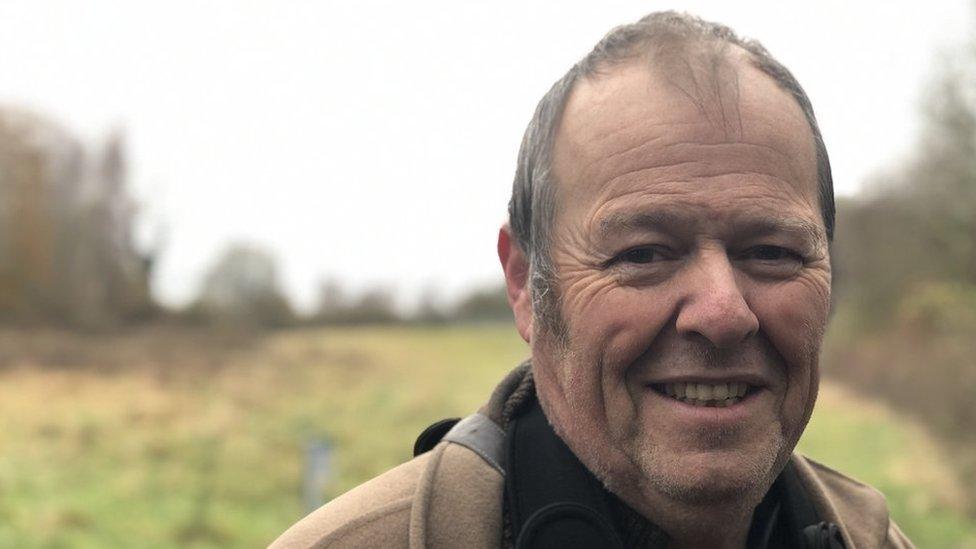
Ian Castledine says he has been taking pictures of the headstocks since 1991
Ian Castledine, a local mining historian, said: "It's quite devastating to those of us in industrial archaeology to see [the headstocks] disappear.
"This is a mining district, and what do we have to show? A winding wheel here and there. Really, this needs rebuilding in its entirety.
"Local history-wise, this is the final remnant of mining in the area really of any sort of note, but also, nationally, it's the only tandem wooden headstock that was left."
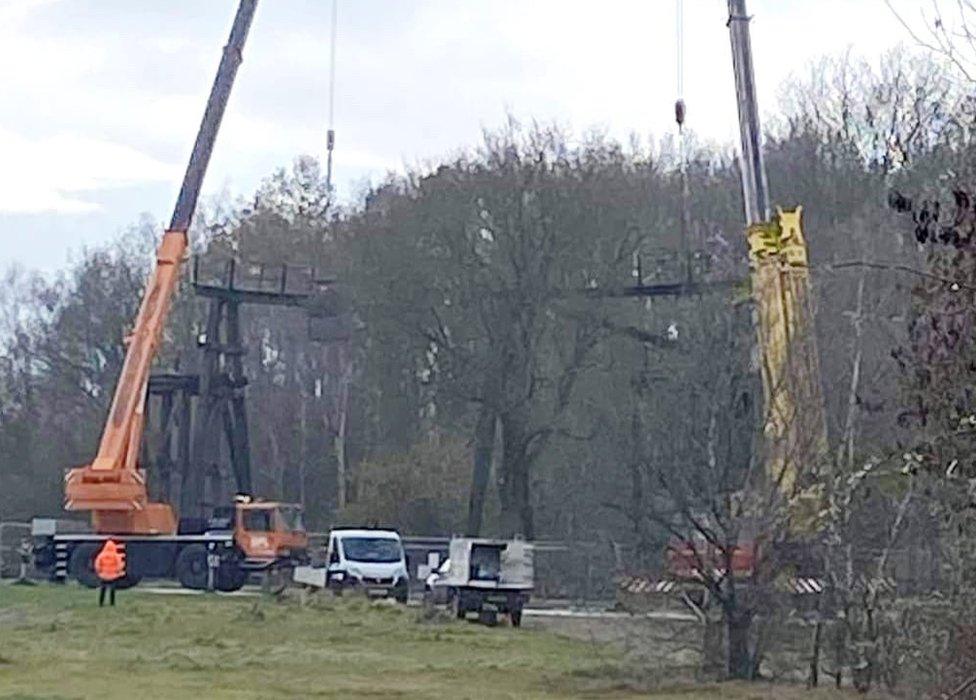
The headstocks were removed using cranes

Follow BBC East Midlands on Facebook, external, on X, external, or on Instagram, external. Send your story ideas to eastmidsnews@bbc.co.uk, external.
Related topics
- Published21 August 2023
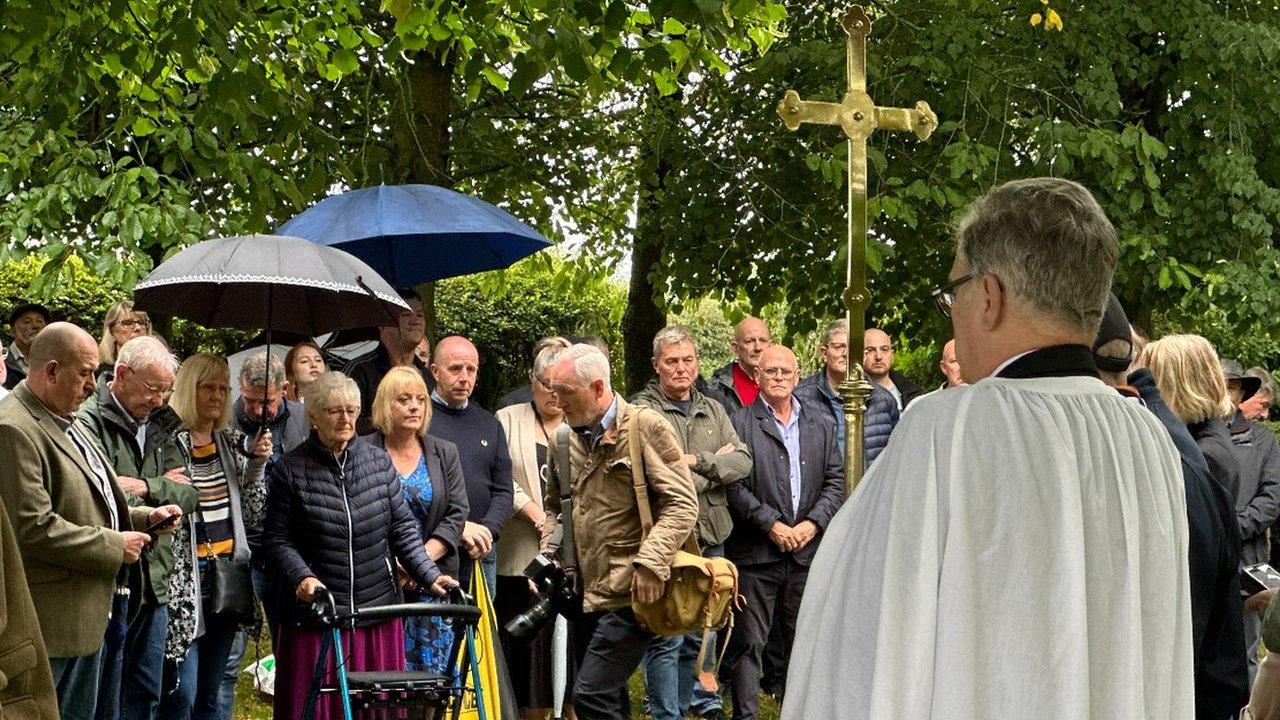
- Published12 June 2022
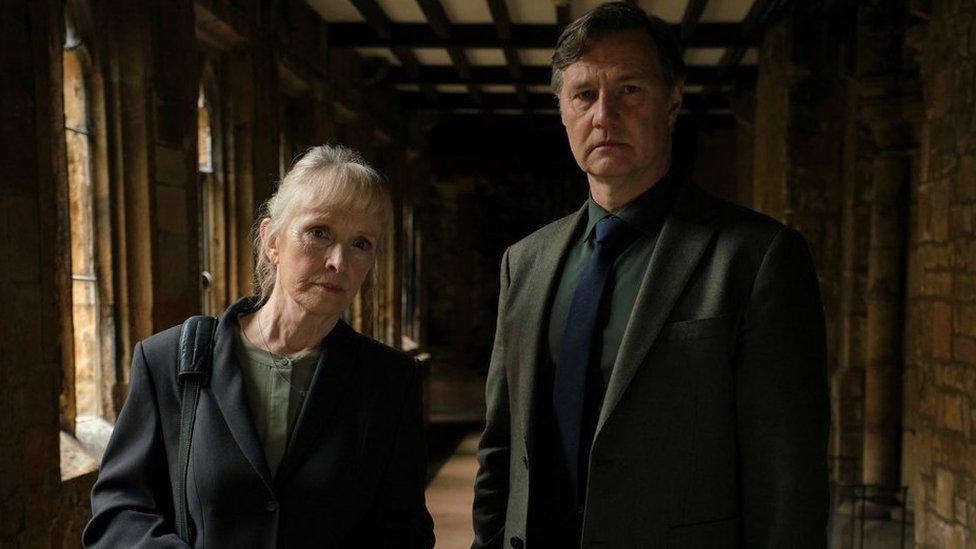
- Published10 July 2015
